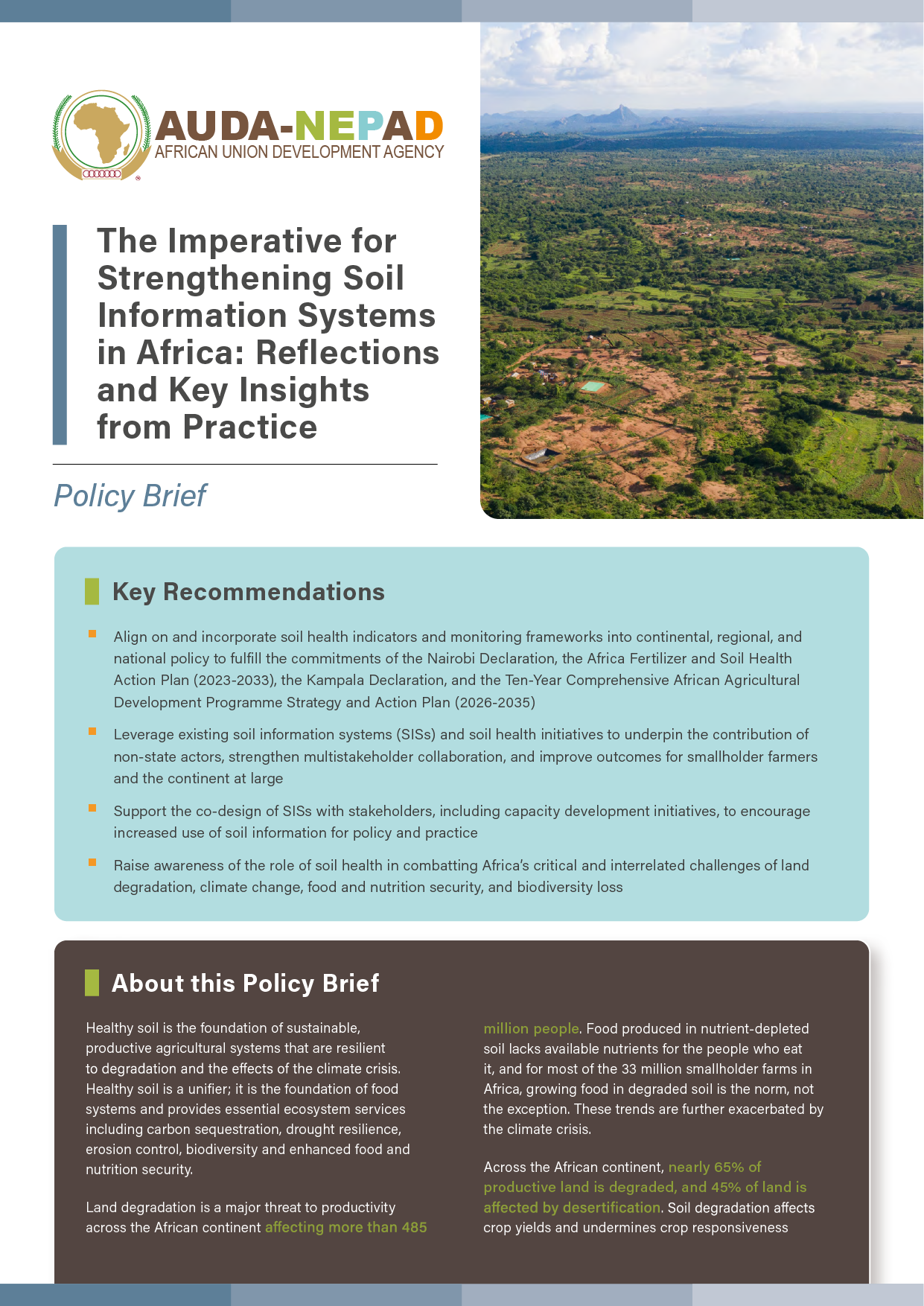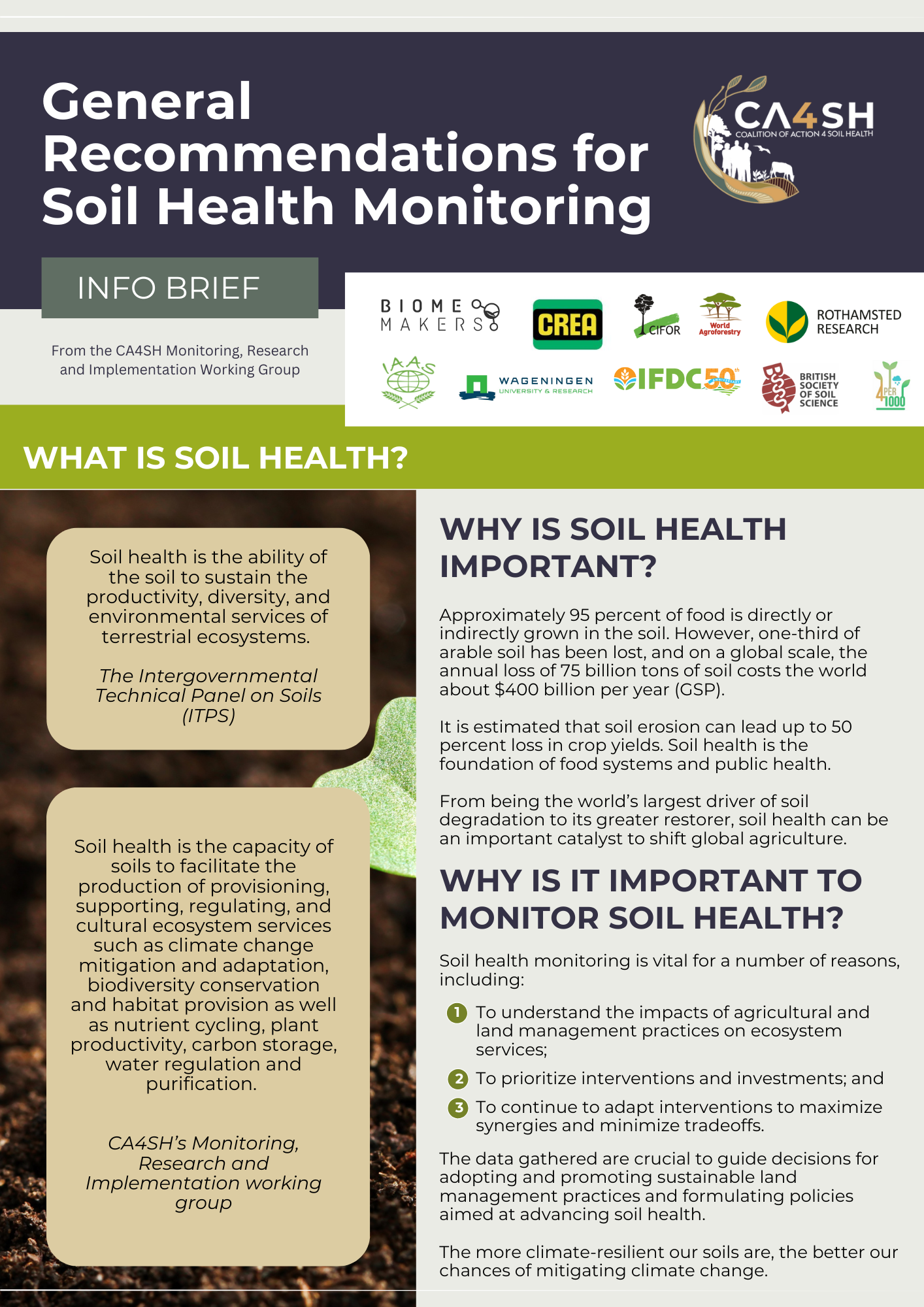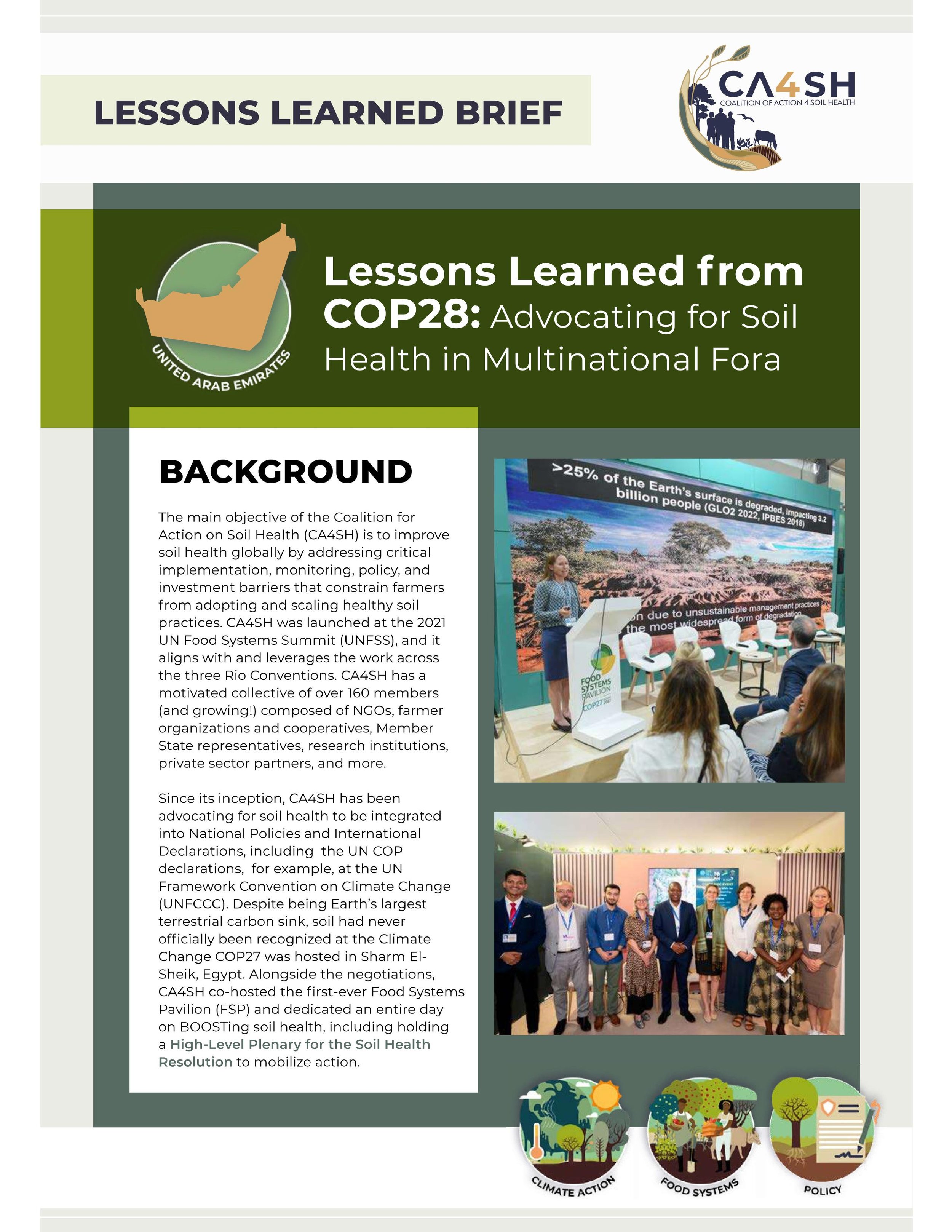
CA4SH is a multilateral, multistakeholder partnership
We are working alongside our membership to collect knowledge, lessons learned, case studies and more to help inform the way forward for stakeholder action for soil health.
Resources presented here are original and generated under the Coalition’s workplan. To browse internal and external resources, visit the Resource Library.
Browse
2024 was a big year for soil health and for the Coalition of Action 4 Soil Health (CA4SH). We engaged global stakeholders in united advocacy to scale soil health through our priority areas of action, including science, policy, finance, youth engagement, and implementation on the ground. Scaling soil health can not happen in a vacuum; it requires the diverse perspectives, expertise, experience, and networks of the global community to come together. CA4SH is uniquely positioned to bring these voices together, offering a community and a meeting place for these partnerships to grow and bloom, and in 2024, we did just that in the name of healthy soil.
African Heads of State and Government formally adopted the Africa Fertilizer and Soil Health (AFSH) Summit Declaration, also known as the Nairobi Declaration, during the AFSH Summit. The AFSH Summit addressed the urgent need to improve soil health and enhance fertilizer utilization across the continent to boost agricultural productivity and alleviate hunger and poverty. These priorities were initially identified in the 2006 Abuja Declaration on Fertilizer for the African Green Revolution.
Furthermore, the 2014 Malabo Declaration under the Comprehensive Africa Agriculture Development Program (CAADP) reaffirmed AU Member States' commitment to inclusive agricultural transformation, building on earlier initiatives such as the 2003 Maputo Declaration on CAADP and the 2004 Sirte Declaration on sustainable agriculture and water management. Despite these commitments, AU Member States have faced significant challenges in implementing the objectives outlined in these declarations.
Only through collaborative, cohesive soil health monitoring efforts can AU Member States ensure that interventions are based on evidence to maximize impact. For example, such a monitoring framework can be used to prioritize, track and adapt locally revelant interventions. In turn these data can be used to inform policy and financial investments. This policy brief outlines the case for African policymakers to scale soil information systems (SISs) and integrate them into continental, regional and national policy frameworks.
To reverse Africa's interrelated challenges of land degradation, climate change, food security and biodiversity loss, African Union (AU) Member States will need to markedly increase the health of their soils and invest in soil restoration that is targeted and based on scientific evidence.
The Coalition of Action 4 Soil Health (CA4SH) is a multistakeholder partnership committed to scaling soil health, globally. CA4SH places a high degree of importance on the role of youth as innovators and experts toward scaling global soil health. Youth are engaged through the #Youth4Soil movement, which includes a working group, mentorship opportunities, and support for speaking and engagement. We also want to highlight youth approaches to advocating for global soil health.
In April 2024, Roël D. Houdanon, Founder & Chief Technical Advisor, Land and Health Association shared an op-ed highlighting the role of youth in defending soil health. He presented several avenues for youth to get involved in scaling soil health:
Awareness Raising
Innovation & Technology
Policy Advocacy
Community Engagement
Education
Science & Research
We reached out to youth partners to learn about their individual approaches to scaling soil health through these thematic action areas.
These are their responses.
The CA4SH Monitoring, Research and Implementation have compiled expert advice and considerations for those looking to monitor soil health.
The Carbon Gap Network or Red de Brechas de Carbono (RBC) project from the Argentine No-Till Farmers Association (Aapresid) takes localized information on climate and the environment and translates it into actionable recommendations for farmers on the ground to maximize their soil’s organic carbon, and foster overall healthier soils.
The Coalition of Action 4 Soil Health (CA4SH) is a multi stakeholder partnership committed to scaling soil health, globally. CA4SH ’s membership base comprises stakeholders from member states, the private sector, research institutions, civil society, farmer organisations, multilateral organisations, and NGOs.
To leverage the wealth of knowledge and experiences from across our partners in addressing key challenges currently constraining farmers to implement healthy soil practices, CA4SH held a three-part virtual Webinar Series in early 2024. The 2024 Webinar Series was held over three sessions under the topics of bringing soil health into policy, science & knowledge for improving and monitoring soil health, and financing healthy soil practices. The objectives were to explore soil-related themes and share experiences with a focus on tailoring and scaling successful methodologies.
This brief summarizes the sessions, and coallates lessons learned, calls to action, and opportunities for scaling these approaches to align action on soil ahead of the 2024 Rio Conventions.
Soil health was formally recognized in the COP28 UAE Declaration on Sustainable Agriculture, Resilient Food Systems, and Climate Action, in part because of the advocacy approach taken by CA4SH and our partners. In this brief, CA4SH partners and member states who engaged in this process lay out key lessons learned while advocating for soil in the context of the UNFCCC COPs, with recommendations for scaling this approach in other contexts.
For the Coalition of Action 4 Soil Health (CA4SH), 2023 was marked by continual learning and exponential growth, and we are celebrating by launching the inaugural Annual Report. Highlights include a reflection on our roots and growing the Coalition (which now has over 170 multistakeholder members and counting!), zooming in on key engagements, advocating for soil health in the climate agenda, achievements, lessons learned, and a look at what’s to come.
The Soil Health Resolution is a set of commitments to enable and scale healthy soil practices to mitigate and adapt to climate change, restore biodiversity, improve water resilience, enhance food and nutrition security, and protect natural and cultural heritage.











